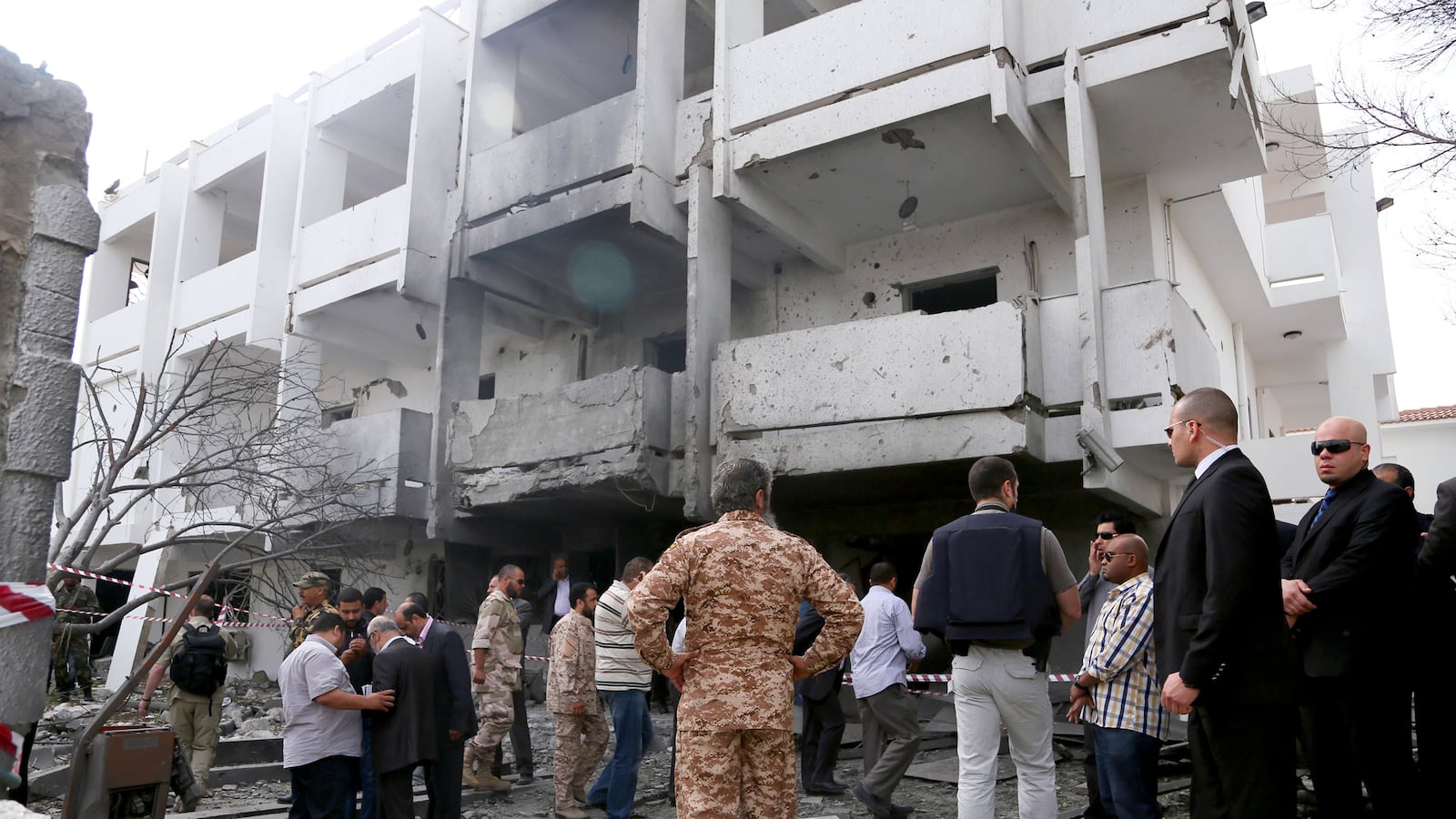A jihadist group calling itself the Mujahedeen Brigade was likely behind a car bomb blast outside the French Embassy in the Libyan capital of Tripoli that injured two French security guards, one severely, and wounded several residents in neighboring houses.

Security sources say a statement from the Mujahedeen Brigade, which was uploaded several days ago to YouTube by the Islamic television channel in the eastern Libyan city of Derna, announced it was behind the attack on the French Embassy. It appears either the video was uploaded prematurely by accident or that the bombing had been planned for April 5 and was for some reason aborted.
“The target was the infidels’ headquarters [the French Embassy], and from now on our jihadist operations are transferred to Tripoli. No embassy, company or building occupied by the westerners is safe from our harm,” the speaker on the video states.
The French Embassy wasn’t the only target. A second attack was thwarted by the security guards at the offices of an international organization in the Libyan capital with the bombers foiled as they were preparing to park a rigged vehicle in front of a compound gate.
Car bombs have been rare in Libya. But according to Libyan and foreign security sources, the bomb used against the French Embassy was well constructed technically and a substantial amount of explosive was used, capable of generating an explosion that scattered debris three blocks away.
On Friday, Al Qaeda in the Islamic Maghreb threatened retaliation for the French intervention in Mali against an Islamist insurgency.
Today’s blast is the worst attack on a foreign mission in Libya since the assault last September on the U.S. consulate in the eastern city of Benghazi that led to the death of Ambassador Christopher Stevens and three other American officials.
The blast in Tripoli, the first major attack on a foreign mission in the capital since the toppling of Col. Muammar Gaddafi, destroyed the embassy's ground-floor reception area and a perimeter wall, as well as damaging neighboring houses and shops in the smart residential district of Hay Andalous.
A neighbor said the explosion detonated shortly after seven in the morning. “I heard two explosions, about 30 seconds apart,” Mustafa Gehani told the Libya Herald. The first blast was likely the car bomb; the second a nearby parked car that caught fire and then exploded.
Eyewitnesses say two shocked Egyptian cleaners fled the building and that locals rushed to the embassy and dragged from the smoke and flames a half-conscious guard who was bleeding from a head wound. Residents complained about the length of time it took for the emergency services to arrive: half an hour for firefighters and nearly two hours before the police and interior-ministry guards showed up. A young girl suffered a spinal-cord injury in the attack and reportedly was being transferred to Tunisia for treatment.
French President François Hollande called on Libya to act swiftly over this attack. “France expects the Libyan authorities to shed the fullest light on this unacceptable act, so that the perpetrators are identified and brought to justice,” he said.
The Libyan government, which has been struggling to exert authority on the country and to rein in revolutionary militias who have refused to disband, has failed so far to bring anyone to justice over the assault on the U.S. consulate. In recent weeks it has begun to crack down on militias, and government forces have seized 36 bases used by revolutionary brigades.
Libyan Foreign Minister Mohammed Abdel Aziz condemned the bombing as a “terrorist act,” but did not speculate on who might be behind it. He was speaking several hours before the Mujahedeen Brigade video was spotted. Some security sources suggested the group might be connected with the Algerian jihadist Mokhtar Belmokhtar, who was reported as having been killed on March 3 by Chadian forces.





